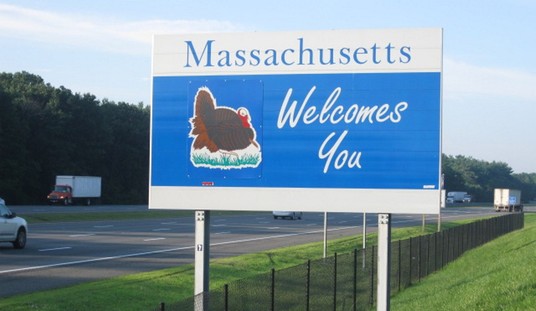On Wednesday, President Trump's assumption of power to impose and negotiate tariffs ran into a buzzsaw in the Supreme Court. Although Solicitor General D. John Sauer did a phenomenal job defending the administration, it was clear that he was definitely rowing against the current.
BACKGROUND
This case arises from the Trump administration's use of tariffs as a combined tool of foreign and economic policy, relying on a law called the International Emergency Economic Powers Act. This 1977 law allows the president to invoke it “to deal with any unusual and extraordinary threat, which has its source in whole or substantial part outside the United States, to the national security, foreign policy, or economy of the United States.” In particular, Section 1702 of the law permits the president to “regulate … importation or exportation” of “property in which any foreign country or a national thereof has any interest,” in the event of a national emergency declared under the law.
Using IEEPA as the cornerstone, Trump issued a series of executive orders, beginning in February, that imposed two sets of tariffs. One set, usually called the “trafficking” tariffs, targeted products from China, Canada, and Mexico, which, Trump says, have not done enough to stop the flow of fentanyl into the U.S. A second set, known as the “reciprocal” tariffs, targeted unfair trade practices by other countries. Trump labeled large trade deficits as an “unusual and extraordinary threat to the national security and economy of the United States.”
The tariffs were challenged by two different groups of small businesses, alleging serious economic harm from the tariffs. They filed suit in the U.S. District Court for the District of Columbia and the U.S. Court of International Trade. A group of 12 states, led by Oregon, also brought a lawsuit in the Court of International Trade. The states’ lawsuit was joined with the case brought there by the small businesses. In lower court action, the administration failed to win a single tariff case.
BACKGROUND:
Federal Trade Court Strikes Down Trump’s 'Liberation Day' Tariffs, Citing Overreach – RedState
New: Another Judge Rules Against Trump's Tariffs – RedState
Not So Fast: Federal Circuit Halts Trade Court Ruling on Trump Tariffs – RedState
In September, the Supreme Court agreed to consolidate the cases and fast-track them as a single case.
The biggest problem for the administration came down to the "major questions doctrine." This says that if an agency's interpretation of a statute addresses a major question, it is presumed to be invalid unless Congress has given it clear authorization to act. This doctrine limits the power of regulatory agencies, preventing them from making broad, transformative policies without specific direction from lawmakers. So the same doctrine that killed Biden's "Clean Power Plan," the CDC's COVID eviction moratorium, and the OSHA COVID vaccine and testing mandates may spell the death knell for Trump's tariffs.
Some Highlights
A hypothetical from Justice Neil Gorsuch highlighted the concerns of the court:
Gorsuch echoed Roberts’ concerns about the application of the “major questions” doctrine, asking Sauer whether a president could “impose a 50-percent tariff on gas-powered cars and auto parts to deal with the unusual and extraordinary threat from abroad of climate change.”
Sauer indicated that the Trump administration would “obviously” say that climate change is a “hoax,” but that another president would be able to do so.
I'd think we would all agree that this kind of administrative power takes us right back to shutting down beaches during COVID without anything approaching legislative action.
Sauer made an interesting argument in regards to the "major questions" issue. That, as the law clearly grants the president the right to regulate importation or exportation, it is assumed that he has the necessary tools to do so. Tariffs, as imposed by the Trump administration, he argued, are not "taxes," per se; they are foreign policy tools used to modify the behavior of other nations.
SG Sauer on why tariffs are not subject to major questions doctrine: The point of IEEPA is to confer major powers. A core power of regulating importation is to impose tariffs. How can you regulate importation without imposing tariffs? Polk, Lincoln, McKinley asserted power to…
— Benjamin Weingarten (@bhweingarten) November 5, 2025
The administration got help from Justice Alito.
Justice Alito: Suppose imminent threat of war with powerful enemy whose economy was heavily dependent on U.S. trade. Could a president under this provision impose a tariff to stave off war?
— Benjamin Weingarten (@bhweingarten) November 5, 2025
Katyal: Couldn't do tariff, but could do quota, embargo. It's an issue of a tariff being…
They also got help from Justice Kavanaugh.
Justice Kavanaugh: You agree power to cut off all trade with country is in statute. If President says let's do something more calibrated, tariff, you're saying can't do that. One tool is more extreme than authorized. That seems a bit unusual. Consider tariff on India to help…
— Benjamin Weingarten (@bhweingarten) November 5, 2025
Even a very skeptical Justice Amy Coney Barrett didn't make it easy for the people challenging Trump's tariffs.
But Barrett was also skeptical at times of the challengers’ arguments. Along with Justice Brett Kavanaugh, she pressed Benjamin Gutman, the solicitor general of Oregon, who represented the group of 12 states, about whether IEEPA on the one hand could give the president very broad powers – for example, allowing him to shut down all trade with another country – but on the other would not allow him to take the much smaller step, in her view, of imposing tariffs. Such a paradox, Kavanaugh suggested, created an “odd donut hole” in IEEPA.
Gutman later responded both that IEEPA gives the president “a range of tools that are more calibrated” than simply imposing a “complete embargo.” Moreover, he added, other trade laws could allow the president to impose tariffs in such a situation.
While the left is playing the arguments up as a butt-whipping for President Trump, the result was a lot more nuanced. The six conservatives were obviously concerned that any overarching decision would result in a perverse situation where the president had the statutory authority to do something, but was deprived of anything but the most extreme tools to accomplish the mission. I would argue that the War Powers Act is a prime example of how that plays out.
The biggest problem is going to be getting at least two of the Roberts, Barrett, and Gorsuch troika over this one particular hurdle.
At one point, Justice Neil Gorsuch, illuminating his own thinking, said: “The really key part of the context here…is [that] the constitutional assignment of the taxing power to Congress, the power to reach into the pockets of the American people, is just different and it’s been different since the founding.”
Prognosis
To be clear, even the justices most favorably disposed toward Trump had grave reservations. The justices even asked how the tariffs paid to date could be refunded if they were ruled illegal. They were concerned about how Congress gets its right to regulate trade back from the president once he has it. They were troubled by the prospect of a president using tariffs to create his own revenue stream outside Congressional appropriations. But, by the same token, major questions like these are often decided on the basis of politics as much as on the law.
The justices have to be keenly aware that Trump's effectiveness as a president rests on this decision. A decision declaring the tariffs illegal would be a huge humiliation for Trump both domestically and internationally, and Trump doesn't handle humiliation all that well. They also have to be aware that Trump has done them a solid so far by going along with stupidly partisan rulings by district courts instead of telling them to FOAD.
We've seen something like this before. When Obamacare was challenged on the grounds that it constituted an unconstitutional penalty for refusing to buy health insurance, everyone knew that was the case; however, everyone also knew that it was Obama's signature legislation and that there would be a political price to pay for striking it down. Justice John Roberts threaded the needle when he declared that it was not a penalty but a tax, and therefore a function of Congress's core power; see National Federation of Independent Business v. Sebelius. The key to this case is persuading five justices to conclude that tariffs are, in fact, a means of conducting foreign policy, rather than a tariff in the economic sense. I think, now keep in mind that I Am Not A Lawyer, that we will see a fractured decision that permits Trump to use tariffs for carrots-and-sticks in negotiations, but, at the same time, would prevent them from being used to reorder domestic policy, such as with the embargo on gasoline-powered cars and auto parts hypothesized in the Roberts question. We should know by Christmas.
The Schumer Shutdown is here. Rather than put the American people first, Chuck Schumer and the radical Democrats forced a government shutdown for healthcare for illegals. They own this. Help us continue to report the truth about the Schumer Shutdown. Use promo code POTUS47 to get 74% off your VIP membership.













Join the conversation as a VIP Member